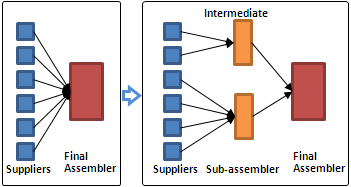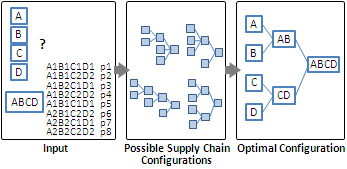Complexity Analysis of Assembly Supply Chains
Background
- Product variety increases due to today’s fierce competition in market
- Companies move from traditional non-modular assembly supply chains to modular assembly supply chains to cope with the increasing variety
- Companies want to know how to make the decisions about supply chain configuration
- Direct cost comparison is difficult and some parameters are not available
Objective
- Proposing to use a new performance measure, complexity, to evaluate the supply chain
- Investigating the relationship between complexity and cost of an assembly supply chain
- Developing an algorithm to find optimal supply chain configuration
Approach
- Defining the complexity measure based on Shannon’s information entropy
- Using majorization theory and Design of Experiments (DOE) methods to study the relationship between complexity and cost
- Developing an iteration decomposition algorithm to find optimal supply chain configuration
Researchers
- Hui John Wang
- Prof. Goker Aydin (IOE)


